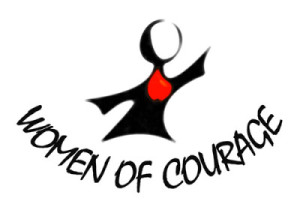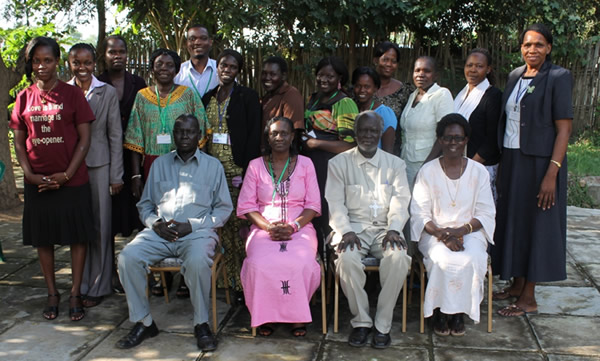Women of South Sudan desire a life of dignity, sustainable peace, and development

KAIROS funded partner, the Fellowship of Christian Councils and Churches in the Great Lakes and Horn of Africa (FECCLAHA), a sub regional fellowship of churches affiliated with the All African Conference of Churches, held a workshop with women representatives of the Sudan Council of Churches (SCC), another KAIROS funded partner, in Juba, South Sudan in mid-August 2012 on the subject of the 2000 United Nations Security Council Resolution (UNSCR) 1325: The Role of Women in Prevention and Resolution of Conflict, Peace Building, and Post Conflict Reconstruction. Although the Republic of South Sudan (RoSS) has not ratified UN SCR 1325 which it does not view as binding, the issues involved are extremely important. UN SCR 1325, the first ever resolution that specifically addresses the impact of war on women and children, specifically emphasizing the importance of women’s equal participation and full involvement in all efforts in maintaining and promoting sustainable peace and security is very relevant to South Sudan. Women participants came from Greater Bahr-el-Ghazal, Greater Equatoria, and Greater Upper Nile regions in the newly independent Republic of South Sudan representing member churches of SCC: the Catholic Church, Episcopal Church of Sudan, Presbyterian Church of South Sudan, Sudan Pentecostal Church and Africa Inland Church. In the recent independence referendum 52% of the voters were women.
The workshop reflected upon the three pillars of UN SCR 1325 which are protection, prevention and participation. The role of women in South Sudan in the ongoing constitutional making process was addressed in the workshop which raised awareness on the gains and weaknesses for women in the 2011 Transitional Constitution of the RoSS as well as opportunities for women’s participation in the ongoing process at a critical time in the history of the country as it embarks on the immense process of reconstruction suffered two decades of civil war. Workshop presenters included: the Hon. Janet Ayaa Alex, Deputy Chairperson, Committee of Foreign Affairs and International Cooperation, RoSS National Legislative Assembly; Ms. Jacqueline Nasiwa, Programme Manager, Constitution Development Department, National Democratic Institute; Ms. Julia Akur, Deputy Chair of Southern Sudan Women Lawyers and Part-time Lecturer of University of Juba; and, the Hon. Joy Kwaje, Chairperson, Committee of Information, Telecom, and Culture, RoSS National Legislative Assembly,
The National Constitutional Review Commission has been tasked with drafting of a Permanent Constitution for South Sudan. The workshop participants want to actively participate in educating the public, with a focus on women, on constitutional issues and other governance concerns in the country. A Communiqué was issued at the conclusion of the workshop by the SCC and FECCLAHA urging National Constitutional Review Commission to take into account the participation of women and other vulnerable groups in the country, at all levels and adhere to principles of democracy and human rights. The communiqué also urged that the President of the Republic of South Sudan, in appointing members of the National Constitutional Conference to review and deliberate on the draft Constitution, to take into account the full participation of women, representing all the groups including the faith communities, vulnerable groups, the physically challenged and civil society members, and gender mainstreaming, so that the Permanent Constitution will ensure gender sensitivity in articulating various issues. The communiqué further urged the National Legislature that, on receiving the draft Constitution, it should respect the timelines and agreed upon considerations in debating and deliberating upon the concerns, especially as they relate to women.
The women workshop participants insisted that the government’s first and foremost duty to provide security and protection for its citizens, especially and called upon the Government of South Sudan to ensure that the rule of law and rights of women to protection and equality are respected. The women urged SCC leadership to recruit a National Women Programme Coordinator to effectively facilitate the work of women across the country, and SCC member churches to deliberately create spaces to ensure that women actively participate in the Constitutional Review Process.

Participants of the UN SCR 1325. From right-seated Acting General Secretary of Sudan Council of Churches (SCC) Rev. Mark Akec Cien, Mrs. Elizabeth Kisiigha-Executive Director, FECCLAHA; Bishop Enoch Tombe – Episcopal Church of South Sudan; and Mrs. Gladys D. Mananyu-Sudan Council of Churches – Equatoria State








